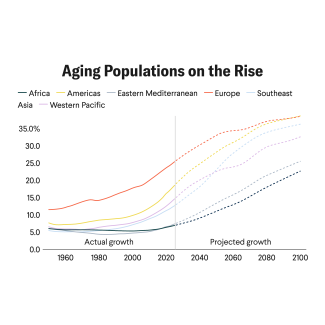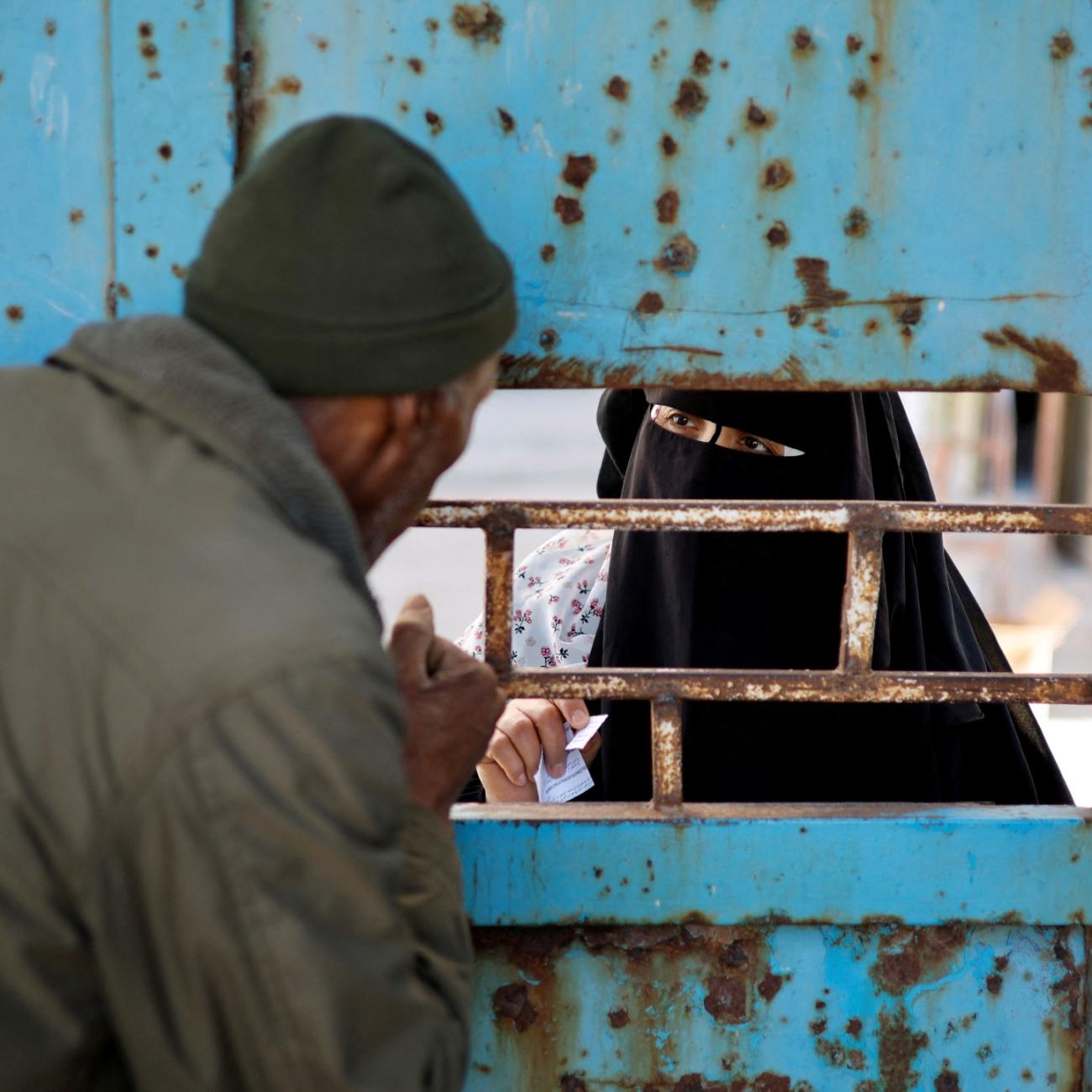Pregnancy is an exciting time for most women. But for nearly 50,000 women in Gaza, it's a time of extreme stress and fear over whether they and their babies will survive.
Having worked in other conflict zones, I have seen the devastating impact that war and displacement have on maternal and child health. Yet, as these firsthand stories convey, the situation in Gaza is uniquely alarming given the sheer scale of the crisis and the compounded difficulties in accessing care.
Before October 7, Gaza had more than 70 health centers and a strong health-care system where women could access pregnancy care. Now, only 16 out of 26 hospitals are functioning, and those only partially. Limited health facilities mean that women must travel farther for care, navigating treacherous conditions. If violence does not kill them, pregnancy-related complications could: 15% are expected to experience complications requiring emergency obstetric care, which is largely unavailable.
Over the next month, 5,500 women will give birth in Gaza. Displacement camps, homes, small clinics, and makeshift locations have become impromptu birth centers without trained health workers. Women who give birth outside health facilities face increased risks of all leading causes of death, including postpartum hemorrhage, high blood pressure, seizures, prolonged labor, and infections.
Over the next month, 5,500 women will give birth in Gaza
The fortunate ones who deliver in a hospital will find overcrowded conditions with inadequate medicines; nearly all hospitals lack the electricity to maintain neonatal intensive care units. Mothers will be discharged early, meaning they will return to tents, often in pain, and try to breastfeed fragile newborns, all while caring for older children and perhaps aging family members with little to no food, water, or sanitation.
The health and human rights crises in Gaza are worsening daily. As long as violence continues, the lives of all pregnant women are at risk, and the region could lose an entire generation.
Project HOPE
In February, I traveled to Gaza with Project HOPE to help restore health-care access for pregnant women. I met nurses, midwives, doctors, and logistics teams working to prepare a health facility amid the crowded tent cities in Rafah before the latest ground incursion sent everyone packing again.
Everywhere I went in Gaza, I heard from pregnant women and new mothers who were vulnerable and terrified. One woman who had given birth by caesarean section was discharged without pain medicine, left to recover from a major surgery with a newborn in a tent while exposed to the elements and infection.
Most pregnant women in Gaza never receive a prenatal checkup, so no one is monitoring the fetal heart or blood pressure or checking for anemia, which can result in undiagnosed and untreated concerns such as preeclampsia or eclampsia—all of which can result in postpartum hemorrhage—the leading cause of maternal death.
Project HOPE has established three antenatal clinics in Gaza. The one in central Gaza, which sees up to 60 pregnant patients daily, has seen a rise in pregnant women seeking care for hepatitis A, vaginitis, anemia, malnutrition, and miscarriage. For many, it is their first time seeing a midwife or doctor and some are nearing the end of their pregnancy by the time they visit. The clinic provides free prenatal care, including ultrasounds, but resources are limited because of funding and difficulties moving medicine and medical supplies into Gaza. We do what we can with what we have.
Over the last few weeks, 26% of the pregnant women at our primary health clinic in Deir al Balah have been malnourished. According to the United Nations, more than 90% of pregnant and breastfeeding women in Gaza face severe food poverty. People have reported eating nothing but white bread because fruit, vegetables, and other nutrient-dense foods are impossible to find or too expensive. Many new mothers are not receiving the support needed to establish breastfeeding. Given contaminated water sources and a lack of formula, bottle feeding leads to high numbers of infant sickness and death.
Stories from Gaza
When the Project HOPE team met Huda, she was seven months pregnant. She'd fled on foot to a displacement camp, where she watched her sister deliver a premature baby who died because needed care was not available. Huda, seeking health care to avoid a similar fate, moved again to Rafah, where she lived in a tent.
The team also met Nisreen, a 25-year-old mother of three who walked while in labor eight miles with her family to safety, where she lived in a shared room with 50 other people. She did not feel strong or supported enough to breastfeed and could not find diapers or milk. As a result, her newborn contracted an infection.
After the May ground incursion in Rafah forced families like Huda's and Nisreen's to flee for safety, I do not know what became of them or their children. Pregnant women like these are at an increased risk for postpartum depression because they face the fear of constant and devastating violence and the stress of being displaced.
We see the same horror repeat itself again and again. Nothing surprises us anymore; nothing makes us sad or happy. We have no joy
Motaz al Aaraj, Project HOPE
A colleague in Gaza, Motaz al Aaraj, told me, "from a medical and psychological standpoint, everything is difficult and tragic. We see the same horror repeat itself again and again. Nothing surprises us anymore; nothing makes us sad or happy. We have no joy."
Women in Gaza deserve adequate access to health care and safe facilities to give birth and receive care for emergencies. At a minimum, women need access to midwives with the right tools and a 24/7 referral system. In addition, all communities need clinics and outreach workers to monitor pregnant women and provide support for a safe pregnancy.
In the absence of substantial and immediate increased access to humanitarian aid and a permanent ceasefire, the misery in Gaza will only continue, and more people will die every day from relentless violence and preventable causes. We urge the U.S. government and other pivotal actors to leverage their full influence to safeguard innocent lives and uphold international humanitarian law.


